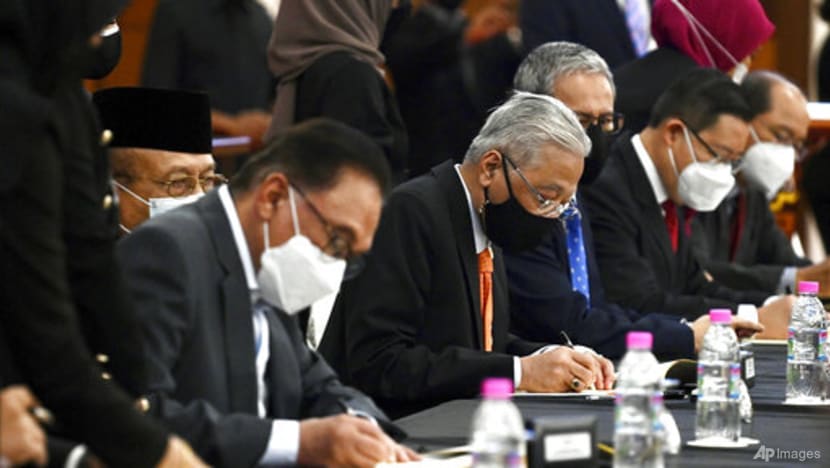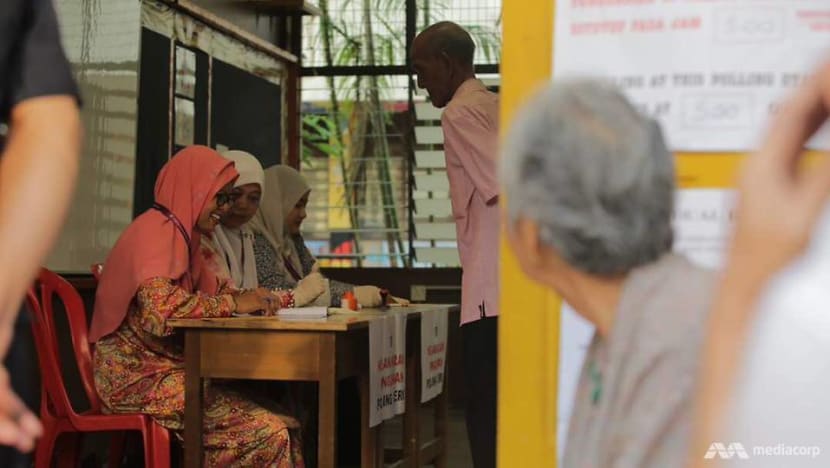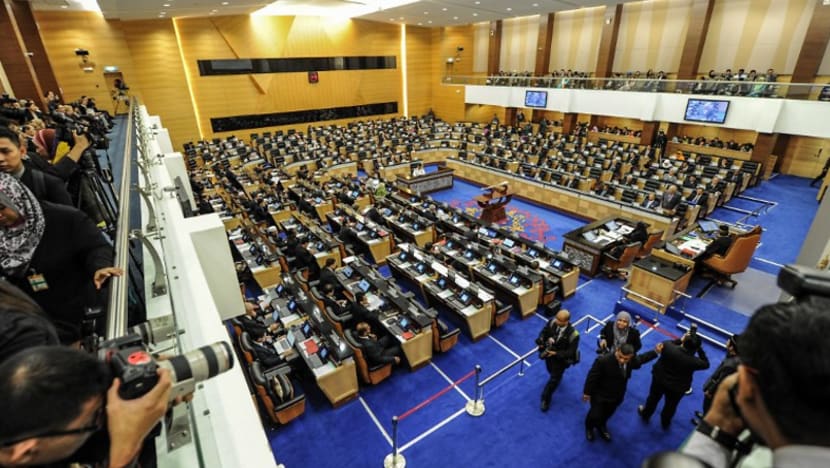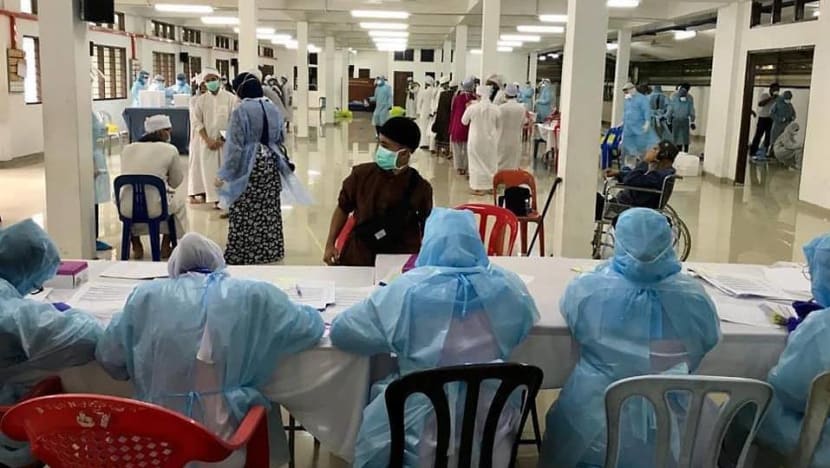5 key takeaways from bipartisan cooperation MOU between Malaysian government and opposition Pakatan Harapan

Malaysian Prime Minister Ismail Sabri Yaakob, centre, and opposition leader Anwar Ibrahim, left, at the signing of the MOU on bilateral cooperation on Sep 13, 2021. (Photo: Zarith Zulkifli/Malaysia's Department of Information via AP)
KUALA LUMPUR: On Monday (Sep 13), the Malaysian government signed a Memorandum of Understanding (MOU) with main opposition bloc Pakatan Harapan (PH) to establish a bipartisan cooperation for the sake of political stability.
It was hailed as a historic event in the country, which has seen the collapse of two governments since the 2018 general election due to power struggle.
The king, who had played a prominent role during the political crises, decreed for the politicians to work as one team and set aside the “winner takes all” mentality.
The MOU was signed at the parliament’s banquet hall, with Prime Minister Ismail Sabri Yaakob representing the government and Mr Anwar Ibrahim, Lim Guan Eng, Mr Mohamad Sabu and Mr Wilfred Madius Tangau representing the four component parties of PH.
PH comprises Parti Keadilan Rakyat, Democratic Action Party, Parti Amanah Negara and United Progressive Kinabalu Organisation.
The pact was not signed by other opposition parties such as Parti Pejuang Tanah Air and Parti Warisan Sabah.
The memorandum, dubbed the MOU on Transformation and Political Stability, covers a COVID-19 plan, administrative transformation, parliamentary reform, judiciary independence, Malaysia Agreement 1963 and the establishment of a steering committee.
The agreement took immediate effect and would stand until parliament is dissolved.
The MOU stated that the pact does not affect PH's role in providing checks and balances and ensuring the government's transparency, integrity and effectiveness in handling people's issues.
Here are five key takeaways from the agreement:
1. Parliament will not be dissolved before Jul 31, 2022
As part of the agreement, the government has agreed not to dissolve the parliament before Jul 31, 2022.
This meant that a general election would not be held until at least August 2022, effectively calming the political uncertainties and reducing the likelihood of impending polls.
However, the next general election has to be called by July 2023, five years from when the first parliament sitting was held following the general election in 2018.
2. PH to support or abstain budget 2022 vote
The MOU stated that the PH bloc would either support or abstain during the vote to pass the national budget, related supply bills as well as other Bills or motions construed as confidence votes.
This was on condition that the drafting of the budget, budget-related Bills and other Bills be jointly negotiated between the government and PH.
With Mr Ismail Sabri’s slim parliamentary majority, such an agreement would be helpful for the government as it navigates out of the pandemic and puts in place support measures for the people.
3. Anti-party hopping law, UNDI18 and limiting PM's term to 10 years
The MOU also called for both sides to agree on administrative transformations, such as an Anti-Party Hopping Bill, which if passed, would prevent politicians elected on one party’s platform from defecting to another party.
Political defections of this nature are not uncommon in Malaysia, with elected representatives switching camps before the term expires.
Such defections resulted in the fall of the PH government in February 2020, when a number of MPs from PKR, as well as almost all Parti Pribumi Bersatu Malaysia lawmakers, pulled out of the-then ruling coalition PH.
Defections by state assemblymen from PH to Perikatan Nasional also led to the state governments collapsing in Johor, Perak, Melaka and Kedah.

Additionally, the MOU stated that the government must expedite the implementation of UNDI18, the constitutional amendment allowing 18-year-olds to vote and stand for elections in the near future.
A constitutional amendment to limit the prime minister's term to 10 years should also be tabled and passed in the parliament.
All these administrative transformations must be implemented no later than the first meeting of the fifth parliament term in 2022.
4. Equal funding for government, PH MPs
The MOU also outlined parliamentary reforms, including equal funding for MPs from the ruling government as well as MPs involved in the agreement.
More parliamentary select committees should also be set up, while existing ones should be restructured.

The composition of these committees must reflect the parties’ representation in the parliament.
Moreover, the agreement also stated that appropriate rights and privileges should be accorded to the leader of the opposition, ensuring that the individual is able to carry out his responsibilities “effectively and comprehensively”. Mr Anwar is the current leader of the opposition.
5. Strengthening COVID-19 management
To cater to additional needs in handling the COVID-19 pandemic, the MOU stated that the government would table an extra fiscal injection of RM45 billion (US$10.87 billion) in the parliament for approval.
The sum would be used to strengthen the healthcare system, extend financial help to the people and support continuity of businesses.

Funds would also be set aside to “find, test, trace, isolate, support and vaccinate” the population. The agreement also highlighted that RM10 billion of cash assistance would be channelled to 11 million recipients in the second half of 2021.
Moreover, the agreement outlined that 50 per cent of the members of the National Recovery Council must comprise public and private sector experts.
BOOKMARK THIS: Our comprehensive coverage of the COVID-19 pandemic and its developments
Download our app or subscribe to our Telegram channel for the latest updates on the coronavirus pandemic: https://cna.asia/telegram

















